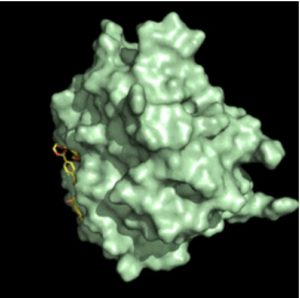In this TACC podcast, Gregg Beckham from NREL and Lee Woodcock from the University of South Florida describe how they are using the Stampede supercomputer to engineer an enzyme that breaks down plastic.
The enzyme is called polyethylene terephthalate, or PET, and it’s used to make things like carpets and bottles for soda and water. This plastic pollutes the soil and the oceans. The scientists say it’s a first step toward recycling PET and other plastics into commercially valuable materials at industrial scale. They published their results March of 2018 in the Proceedings of the National Academy of Sciences. The researchers took advantage for this study of computational resources of XSEDE, the Extreme Science and Engineering Discovery Environment, funded by the National Science Foundation. They used the Stampede2 supercomputer at the Texas Advanced Computing Center, and they used the Comet supercomputer at the San Diego Supercomputer Center. These systems helped them simulate the interactions of the plastic-degrading enzyme with PET.
We used computer simulations to understand how a polymeric ligand like PET would be able to bind to the enzyme,” said study co-author Gregg Beckham, a Senior Research Fellow and Group Leader at the US National Renewable Energy Laboratory (NREL). “We also conducted experimental work to show that indeed, the PETase can break down water or soda bottles, industrially relevant PET films, and another plastic, polyethylene furanoate.”
A dump truck’s worth of plastic empties into the ocean every minute. Worldwide, humankind produces over 300 million tons of plastic each year, much of which is predicted to last centuries to millennia and pollutes both aquatic and terrestrial environments. PET plastic, short for polyethylene terephthalate, is the fourth most-produced plastic and is used to make things like beverage bottles and carpets, most of which are not being recycled. Some scientists are hoping to change that, using supercomputers to engineer an enzyme that breaks down PET. They say it’s a step on a long road toward recycling PET and other plastics into commercially valuable materials at industrial scale.
The study builds on the 2016 discovery of a bacterium that feeds on PET plastic as its source of carbon and energy. The PNAS study authors focused on the bacteria’s plastic-degrading enzyme, called PETase. Team members at the University of Portsmouth, led by Professor John McGeehan, used X-ray crystallography at the Diamond Light Source in the UK to solve the high resolution crystal structure of PETase.





